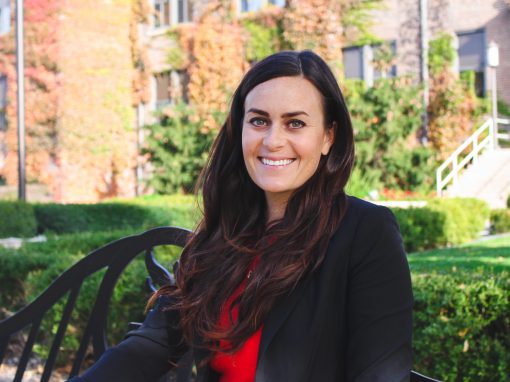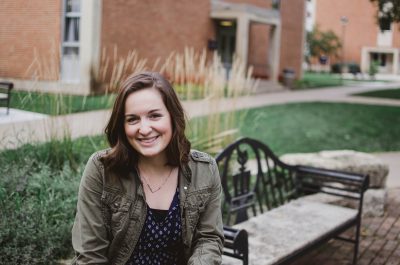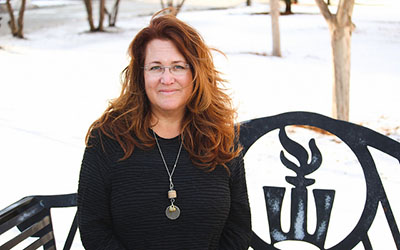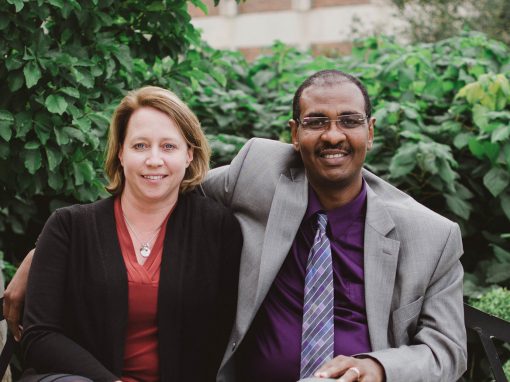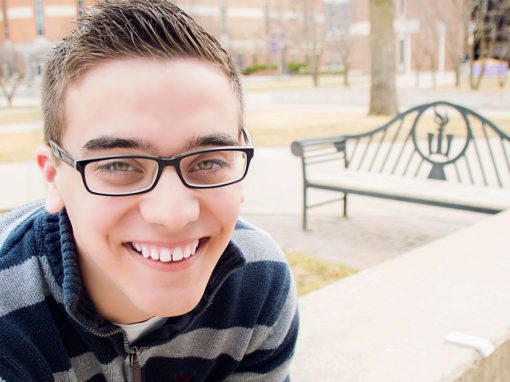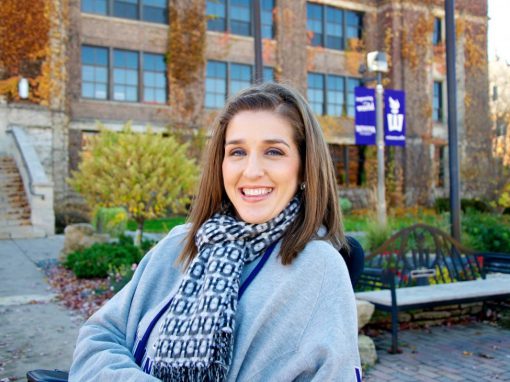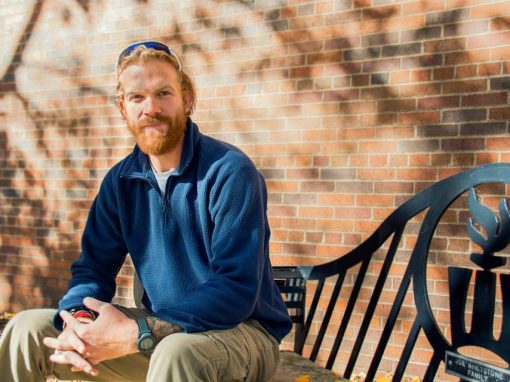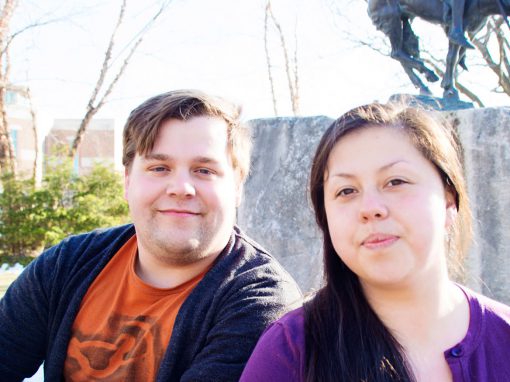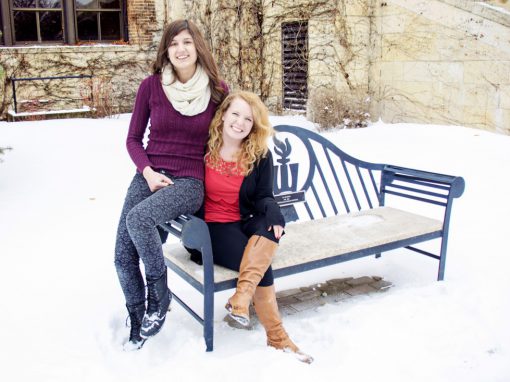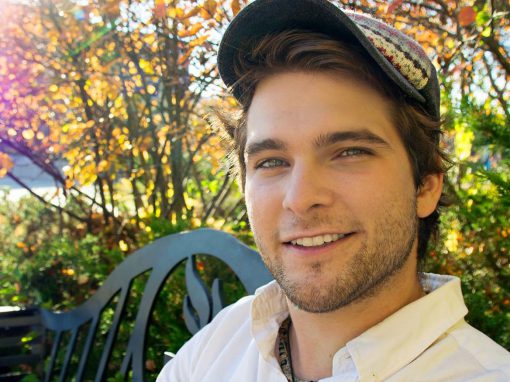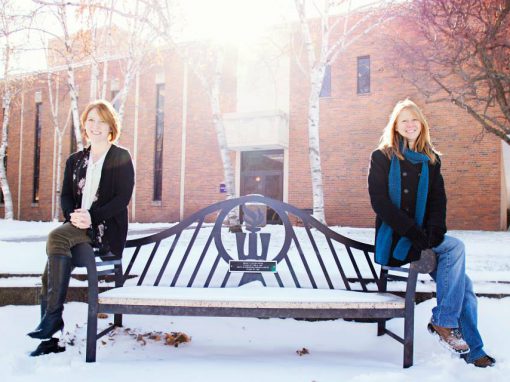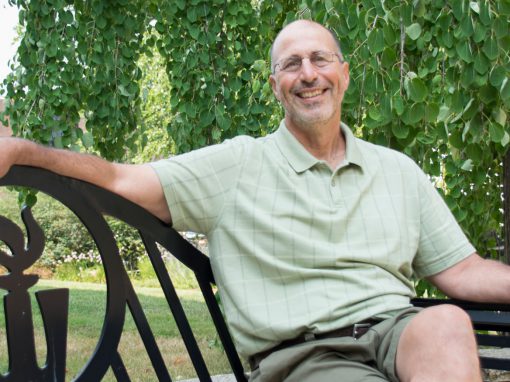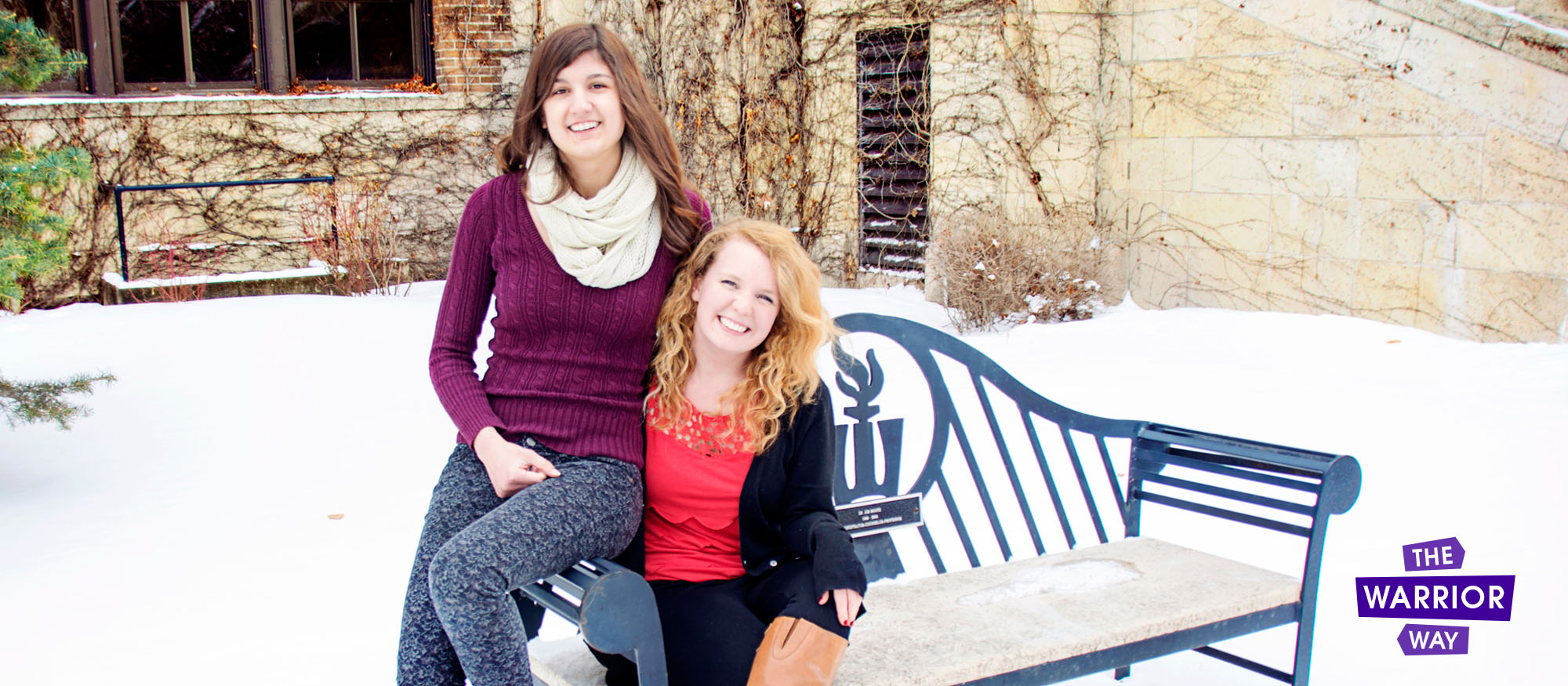
Gretchen Haga ’16 & Abbey Hammell ’15 | Raising Awareness
Gretchen is a Student from Fargo, ND
Spanish & English Education Majors
Abbey is a Student from Rochester, MN
Psychology & Spanish Majors
“People are not defined by their disorder – we want to get that across to the whole community. They are individuals who have so many different aspects to their lives.”
I have known Abbey and Gretchen for a while now—Abbey was my roommate freshman year and I’ve had classes with fellow English major Gretchen—but I had no idea of all they’ve been up to in raising awareness for mental wellness and reducing the stigma of mental illness on campus. After catching up with them in our interview, I was so impressed by their hard work and creativity to make a tough topic like mental health engaging and even entertaining. The Active Minds Mental Health Monologues combines performance and true life testimonials to pack a punch to your heartstrings and open your eyes to the reality of living with mental illness. With the help of other club members and advisors, they have not only created a unique space for mental health to be both personal and public, but also demonstrated their ambition to make the world a better place, beginning with our own campus.
If you’d like to get involved with Active Minds and learn more about promoting mental wellness, check the out the club’s Facebook page.
What is the Active Minds Mental Health Monologues and how did that start?
Abbey: I just happened upon the idea when Googling activities to promote mental health awareness for our club, Active Minds. I’ve been in the Vagina Monologues, which was a fun experience, so I thought why not focus on mental health in a way that can get a lot of people involved? In November, we proposed the event to Counseling and Wellness Services and our advisor Mick Lynch. Then, rather than have one person write all the monologues, we put out a call for submissions written by WSU students, faculty and staff. That way it will be a more personal experience, and show everyone within the WSU community that mental wellness is something worth talking about.
Gretchen: The monologues provide a nice format because people can anonymously submit their stories and somebody else—a trained actor in the theater department or interested volunteers—can be the one to tell their story. After reading a few of these stories, I can tell how cathartic it is for them to give their story. Thus the monologues become a collaborative event where we can understand each other’s experiences and actually make a difference on campus. Creating awareness is very important but causing people to change their behavior is what really counts so it’s our goal to make people aware but also that they connect with a story and get the help they need or find resources for a friend in need, and hopefully start a chain reaction of mental wellness.
What themes have you found in the monologue submissions?
Abbey: We have mostly anxiety, depression and eating disorder stories—that seems to be a huge thing around our campus. Some of them are a little more “this is my life and I’m happy with who I am” and others are almost cursing at their mental illness about everything that has happened to them because of it while some are a mix of both. The main theme is really learning to live with a mental illness and getting the most you can out of life.
Gretchen: What I find really interesting is that each story in any particular disorder category is so different and even people with the same disorder deal with it so differently. Of course, these people are not defined by their disorder—that’s another thing that we want to get across to the whole community—but they are individuals who have so many different aspects of their lives. Another cool thing is that the writers are not just people with disorders, but they are siblings and friends of people with a mental illness and even counselors, which is great because counseling is also stigmatized. It’s interesting to get all these different perspectives.
Why did you want to join Active Minds?
Gretchen: I became involved with Active Minds two years ago when my choir classmate Claire Stevens told me how she wanted establish a chapter at WSU. I just felt drawn to help because I’ve had family members and friends with mental health issues but it’s never talked about, and I think that silence is all too common.
Abbey: I was too busy to join when the club was forming, but it piqued my interest and I kept tabs on it. Then last semester I was invited to speak to the club members about my experience with mental illness. That was the first time I was able to have an open discussion about it with people I didn’t know very well. They were so curious and receptive to my experiences that I realized there are other people like me and there are other people like them who want to learn more and make a difference. So I became one of them too, even though I am graduating soon, because I can see the club’s full potential. That experience speaking to the club led me toward the Mental Health Monologues because I wanted to share others’ stories like I had shared mine.
Has this influenced your career goals?
Gretchen: Definitely. A lot of the stories we’ve collected for the monologues show that peoples’ mental disorders usually start in middle or high school so, as a future English high school teacher, I realize that these are going to be my students. My experience in the Mental Health Monologues and Active Minds will help me be an advocate for my students, to be there for them when there’s no one who they feel they can trust, and encourage kids to get help before it gets worse. I’d even like to talk about it in a classroom to help stop the stigma of having a mental illness and say it’s okay to go to counseling. Granted there is only so much I can do, but I know it will make my career more fulfilling.
Abbey: I’m not sure if this has influence my career goals or if my career goals have pushed me to get involved but my first interest with psychology was when my first psych teacher explained how a neuron worked. It’s just a signal on and off, and somehow those sequences create consciousness which really intrigued me. Throughout my academic career I’ve learned more about how the brain works and I find it fascinating that most the treatments for mental illnesses involve changing something biological in the brain, like a chemical imbalance. A lot of people–even people with mental illness— don’t grasp that it’s not their fault, that it’s something they can’t control and that it’s not a defect in character at all. That’s why I’d like to be a researcher or a clinical psychologist— I’m kind of in between right now.
Who has influenced you the most?
Gretchen: The only person who is coming to my mind is my mom. She is a very strong, independent, fierce woman who just always did what was right—I guess that’s kind of a mom thing. Even though we don’t have a lot of similar interests, she is a strong role model for me and I really admire how she won’t take no for answer.
Abbey: Similarly, the first person in mind was my mother for the drive and ambition that I have gotten from her. She’s been there to push me through a lot of hard times but has also helped me realize that no one else defines me but me, and I should do what makes me happiest. She has shown me that I am more capable than I thought and also the value of being passionate about what you want to do in life and how far that passion can take you.
If you could invite anyone to sit on this bench and have a conversation, who would it be and what would you talk about?
Abbey: I am not very familiar with all the history, but I would really like to meet Martin Luther King Jr. and hear from him all the things he went through to further civil rights. He persevered despite getting so much backlash, and that just takes a strong will and a strong personality. I think it would be amazing to talk to him, learn his secrets, and then apply those secrets to my own life and make change in this world. I’ve read his sermons and it seems like he gets it; he wants everyone to be at peace with each other because it’s not an “us vs. them” thing but a “we’re all in this together” thing. I’d like to see more of that in the world.
Gretchen: For some reason, I keep thinking of Amy Poehler. I’m absolutely obsessed with Parks & Recreation, and from what I’ve seen of her as an actual person, she seems to be this amazing feminist and amazing person. She created The Amy Poelher’s Smart Girls which highlights how girls across the globe are improving the world, which I find so inspiring. Also, in her old comedy work, she is so about being herself and doing what you love and encouraging others to do the same which I really admire. So I’d just get to know Amy Poehler and talk about her life and what she’s doing.
Interviewed and Edited by Elizabeth Meinders ’15 and photographed by Anna Rae Butler ’15
To nominate someone in the WSU community — faculty, staff, student, alumni or friend of WSU — for Warrior Way, or if you have other feedback to share, please email Mollee Sheehan, director of web communications: ms******@****na.edu
